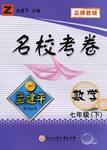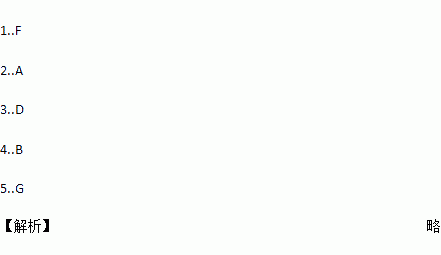题目内容
Let children learn to judge their work.1..If corrected too much,he will stop talking.
He notices a thousand times a day the difference between the language he uses and the language those around him use.Bit by bit,he makes the necessary changes to make his language like other people's.2..They learn to do without being taught to walk,run,climb,whistle,ride a bicycle.They compare their own performances with those of more skilled people,and slowly make the needed changes.
But in school we never give a child a chance to find out his mistakes and correct them for himself.We do it all for him.3..Let him work out,with the help of other children if he wants,what this word says,what the answer is to that problem,and whether this is a good way of saying or doing this or not.
If it is a matter of right answer,as it may be in mathematics or science,give him the answer book.4..Why should we teachers waste time on such routine work?5..Let the children learn what all educated people must some day learn,how to measure their own understanding,and how to know what they know or do not know.
A.Children learn to do all the other things in the same way.
B.Let him correct his own papers.
C.Point out his mistakes.
D.We act as if we thought that he would never notice a mistake unless it was pointed out to him,or correct it unless he was made to.
E.We allow him to learn from other children.
F.A child learning to talk does not learn by being corrected all the time.
G.Our job should be to help the child when he tells us that he can't find the way to get the right answer.
 孟建平名校考卷系列答案
孟建平名校考卷系列答案

 ew said he returned from studying in Australia with confidence and practical knowledge. “After studying abroad in high school, I found the transition to college to be easy. Being 560 miles from home didn’t seem particularly daunting(使人畏缩的) after having lived thousands of miles away.”
ew said he returned from studying in Australia with confidence and practical knowledge. “After studying abroad in high school, I found the transition to college to be easy. Being 560 miles from home didn’t seem particularly daunting(使人畏缩的) after having lived thousands of miles away.”